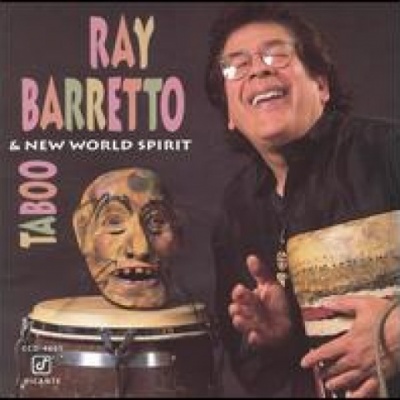
Taboo
by Thom JurekRay Barretto's Taboo features a new, smaller version of his New World Spirit ensemble. Hector Martignon, who composes along with Barretto, is still here, as are Satoshi Takeishi, Ray Vega, and Jairo Moreno. Saxophonist Adam Kolker takes the sax chair vacated by Jay Rodriguez, and guitarist Alfredo Gonzales has not been replaced. The material is far jazzier on Taboo. Barretto explored the roots of Latin jazz as it transformed itself into the New York version of son and salsa on 2003's Hot Hands: Ancestral Messages, and Taboo serves as a guidebook to present and future tenses of Latin jazz. For starters, one can read between the lines that Ray Vega's charts have moved far a-field of the standard notions surrounding big band arrangements. Everything here feels fluid and relaxed; the playing leaves spontaneity in the air whether it is on a Barretto or a Martignon original, such as on "Bomba-Riquen," "99 MacDougal St," or something from the hard bop cannon by Nat Adderley and Oscar Brown, Jr., such as the classic "Work Song," or a modal tune like McCoy Tyner's "Effendi." What comes out is a steamy, emotionally moving, reworking of the soul-jazz ethic by Latin rhythmic and sophistication standards. One tune seamlessly moves into another and the trajectory of soloists against the rhythm section is linear; there is no attempt made by anyone here to play beyond the watermark the band sets, thereby keeping the entire process organic and unified. The counterpoint is engaging, the melodic intervention is groundbreaking, and the interplay of rhythm instruments -- hand percussion, drums, bass, and piano, is nothing less than brilliant and innovative. Taboo actually moves past Hot Hands: Ancestral Messages, and gives listeners a solid view of the shape of Latin jazz to come.
